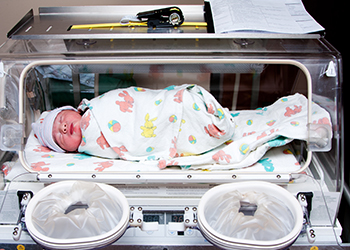
Preterm birth has both short- and long-term impacts on neonatal and child health. There are limited data on healthcare outcomes other than neonatal morbidities and neurodevelopmental outcomes among these preterm infants.
Data access has been approved for a research project called BC Preemies SHINE (Study of Health outcomes IN Early childhood) aiming to address these knowledge gaps and investigate the early childhood health outcomes among preterm infants born in British Columbia (BC), which constitutes around 10% of live births each year. For the project PopData will link administrative data sets from the BC Ministry of Health with data from the BC Perinatal Data Registry.
The project’s team of researchers is being led by Joseph Ting, a Neonatologist and Affiliate Associate Professor, Department of Pediatrics, Faculty of Medicine, at the University of British Columbia.
According to Dr. Ting, in BC, compared with women in urban areas, those in rural areas have higher rates of severe maternal morbidity and severe neonatal morbidity, and a lower rate of NICU admission. “We need to understand early childhood outcomes among preterm infants in our community to establish appropriate public health interventions and improve the health for at-risk infants in BC,” says Dr. Ting.
The project is funded by a Women's Health Research Institute Catalyst Grant, a BC Children's Hospital Research Institute Establishment Award, and a CIHR Operating Grant.
“We hypothesize that infants born prematurely, especially those at earlier gestational age, have higher incidences of infectious diseases, allergic diseases, endocrine disorders, and renal conditions in their first five years of life compared to term infants,” says Dr. Ting. “We hypothesize that late preterm infants requiring respiratory support during the early neonatal period have a higher risk of hospital attendance for respiratory conditions than infants born at term without respiratory support needs. Finally, we hypothesize that preterm infants living in rural regions of BC have higher rates of adverse early childhood health outcomes compared with those in urban areas.”
Researchers and knowledge users including neonatologists, general paediatricians, infectious disease and allergy specialists, an endocrinologist, a cardiologist, a nephrologist, and public health experts have contributed to the development of the project’s research aims and will guide the analysis and interpretation of results to work together on promotion of healthcare outcomes from antenatal, perinatal, neonatal to the early childhood stage.